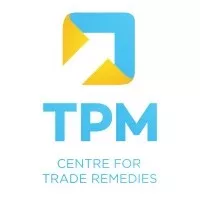- within International Law topic(s)
- in European Union
- with readers working within the Law Firm industries
- in European Union
- within Antitrust/Competition Law topic(s)
In a significant development, the Hon'ble Supreme Court, has recently stayed the operation of the decision of the High Court of Gujarat dated 25th April 2025. In the said decision, the High Court in writ jurisdiction, found it appropriate to exclude ‘speciality grades' of PVC Suspension Resins from the scope of product under consideration in the ongoing anti-dumping investigation concerning imports of PVC Suspension Resins from China PR, Indonesia, Japan, Korea RP, Taiwan, Thailand and the United States of America. The decision of the High Court was challenged by the domestic industry before the Supreme Court, leading to the stay.
The dispute arose pursuant to a request filed by an importer, Epigral Limited before the Designated Authority in the ongoing anti-dumping investigation, seeking exclusion of ‘speciality grades' of PVC Suspension Resins from the scope of product under consideration. The importer contended that the domestic industry did not produce like article to such speciality grades. After examining facts and evidence on record, the Authority preliminarily held that the domestic industry had produced like article to the imported goods, and therefore, such “speciality grades” could not be excluded from the scope of product under consideration. The preliminary findings of the Designated Authority were challenged by the importer before the High Court of Gujarat.
After hearing all parties, the Gujarat High Court noted that the speciality grades in question are used in the manufacture of CPVC pipes and fittings for safe, non-hazardous potable water supply. As per the High Court, these specialty grades are neither produced domestically nor are they technically or commercially substitutable with the grades manufactured by the domestic industry. In view of the same, the High Court found it appropriate to direct the Designated Authority to exclude the specialty grade PVC Suspension Resins imported by Epigral from the scope of the product under consideration. On the question of maintainability of such writ, the Court held that in the absence of a statutory appellate remedy under the Act against the Preliminary Finding, judicial interference at this stage was warranted.
The domestic producers of the subject goods challenged the decision of the High Court. The domestic producers contended that since the investigation was still undergoing before the Authority, it was premature for the High Court to interfere at this stage. It was also contended the High Court should not have directed exclusion of “specialty grades” on merits.
After hearing all the parties, including the stand of the Government of India which supported the domestic industry, the Hon'ble Supreme Court granted stay against the operation of the order passed by the Gujarat High Court. The matter will now proceed before the Supreme Court, which will further clarify the boundaries of judicial review in trade remedy cases.
The content of this article is intended to provide a general guide to the subject matter. Specialist advice should be sought about your specific circumstances.



